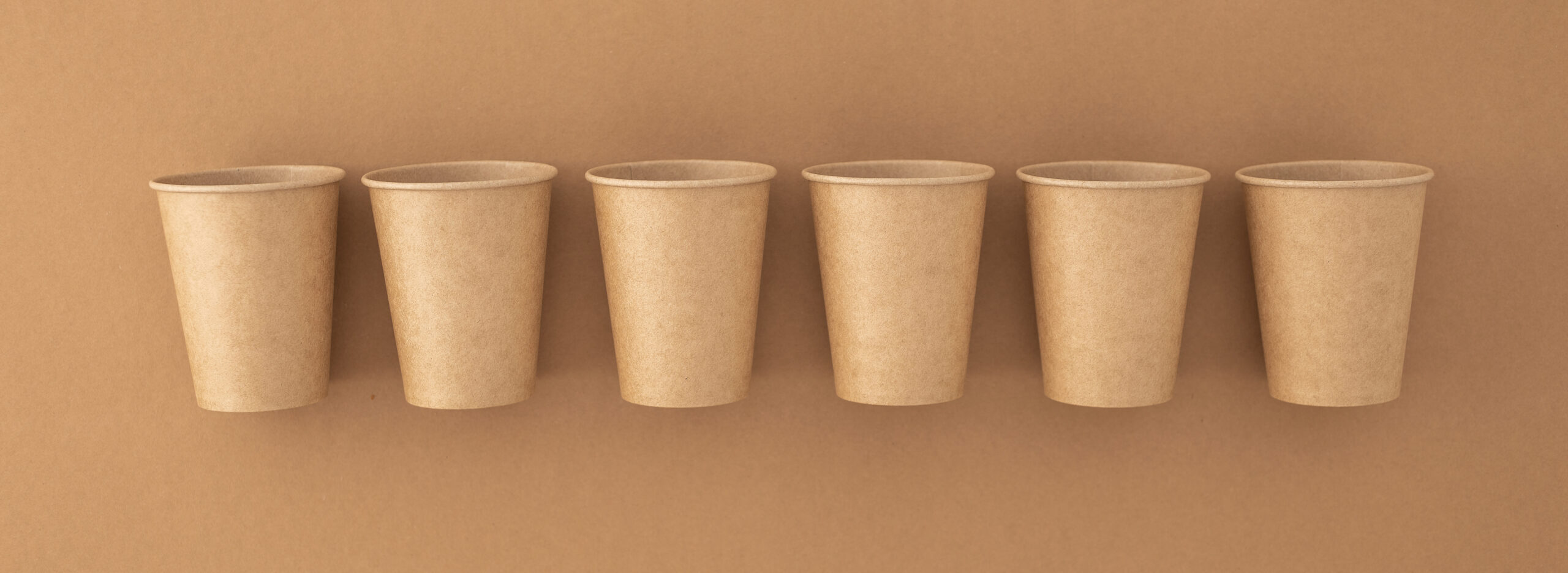NutraBlog
No Disposable Cup Day-5 Sustainability examples in everyday life

Did you know that around 2.5 billion disposable paper cups are used for coffee and tea every year? If we spread this figure across 365 days, this translates to around 7 million dumped in bins and into the environment every day.
This means that as a business owner selling coffee or tea to go or even as a consumer, using takeaway paper cups can create a big problem for our environment. The truth is that to be sustainable, you don’t have to think about complex solutions; it can simply begin with your consumption.
In addition to ditching that paper cup, read on as we share sustainability examples in everyday life you can implement from today.
What does sustainability core values mean?
Before delivering on the core values of sustainability, let’s quickly go over the topic of sustainability. According to The United Nations the real definition of sustainability is:
“Meeting the needs of the present without compromising the ability of future generations to meet their own needs.”
Over 140 countries worldwide are actively researching and promoting ways to live a fulfilling life without compromising future generations. But as a consumer and business owner, you don’t need to wait for the UK government to suggest sustainable actions; you can simply start implementing them yourself.
Sustainability core values and beliefs can be linked to:
- Reducing your carbon footprint
- Effectively managing your waste
- Opting for sustainable resources and technology over conventional ones
- Minimising your overall negative impacts on the environment
- Supporting local businesses and engaging in events that contribute to a better society
5 sustainability examples in everyday life you can implement
Now you have a bit of an idea about the meaning of green values, let’s get you started with some simple, effective and easy to implement ones you can do in your own life. Here are 5 sustainability examples in everyday life to try:
-
Be mindful of your commute
How do you commute to work or in your downtime? If it’s by car, then try to be mindful of the distances and the frequency with which you use it. In 2023, cars accounted for 52% of domestic vehicle emissions, with petrol cars producing 164 grams of CO2 per km and diesel cars producing 170 Grams of CO2 per km on average.
With cars being one of the major contributors to the climate crisis, you can start by reducing your role using them. Either switch to an eclectic vehicle or opt for more sustainable transport options like taking the bus, train, car sharing, cycling or walking.
2. Try not to buy fast fashion brands
Nowadays, new clothes and collections are coming out in a blink of an eye. Many high street brands mass produce clothes and promote sales when many don’t need them. The fast fashion industry is one of the major contributors to the climate crisis. Whenever possible, slow down your fashion purchases by looking after your clothes, taking them for repairs and researching the brand’s values before buying new ones. Always try to purchase sustainable materials like organic cotton, hemp and linen.
3. Minimise your energy consumption
Whenever possible, try to lower your energy consumption in your daily life. Swap your light bulbs for energy-efficient ones, and always turn the lights off when you leave your home. Try to use natural light whenever possible, and always unplug your electronics when not in use. Moreover, for your heating, try opting for programmed thermostats that turn your heating off once your home reaches a certain temperature.
4. Stop using single-use plastics
Another threat to our climate is single-use plastics, which contribute significantly to greenhouse gasses. Single-use plastics are found in bags, bottles, food containers, and more, and they contain chemicals that cause negative impacts on your health and the environment around you. To play your part, you can refuse single-use plastics, here are a few ways you can start:
- Swap plastic bags and use your tote bag or backpack
- Carry a reusable water bottle and refill instead of buying bottled
- Bring your own reusable cup for drinking tea and coffee
- Don’t use straws at restaurants unless they’re reusable metal or silicone
5. Conserve water
One of the best sustainability examples you can implement is simply being conscious of your water usage. Whenever you can try to conserve water by taking shorter showers, fix leaky toilets, turn off the bathroom tap when not using, wash your clothes and dishes on a full load and use low flow shower heads.
Try our biodegradable herbal teas
At Nutratea, we care about sustainability, and corporate social responsibility is at the forefront of our objectives. As a certified B-Corp, we actively implement and refine our environmentally friendly production procedures.
All of the herbs and botanicals in our tea are sustainably and ethically sourced from over 20 countries. Our sustainable core values also lie in the packaging of our teas, where the entire outer packaging is fully recyclable, every tea bag can be used 2-3 times daily and is biodegradable. We also have airtight sachets that preserve freshness and are completely biodegradable. Our award winning herbal teas are not only environmentally friendly but also support a range of health benefits.
While we have a range of Premium blends and Flagship teas one good area to start is trying our healthy wellbeing gift box.
Inside this gift box are three popular blends you can drink from morning to evening.
- NutraRelax: A caffeine free herbal tea that helps you stay calm and supports sleep.
- NutraLiver: A tea that helps support liver, kidney, and digestive health.
- NutraDefence: A caffeine herbal blend that supports your immune and respiratory systems.
Summarising Sustainability values and beliefs
Overall, to be sustainable, you can start simple and alter certain behaviours and the way you go about things in everyday life. It could be as easy as opting to use public transport and using your car less, looking after your clothes and buying less, conserving water whenever possible, and ditching single-use plastics.
To be honest, there are a bunch of options you can start implementing today! To help you brainstorm more, why don’t you try one of our herbal blends in a biodegradable tea bag? With each tea, you can gather a moment of calm and think about your sustainable contributions to the world around you.
Want to know more? Check out our post on herbal teas to drink at work for inspiration.

